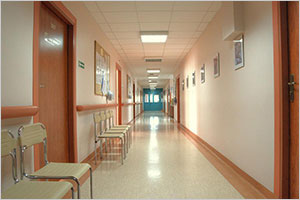President Uhuru Kenyatta met with executives from San Raffaele Research Hospital, a renowned private hospital in Italy managed by group chairman Kamel Ghribi, to sign an agreement for the construction of a National Teaching and Referral Neuropsychiatric Centre in Karen/Ngong.
The 600-bed hospital will be developed on an 80-hectare plot of land purposely to handle the East African country’s rising mental disease burden. The country also inked an MOU with an Italian business for consulting services and the building and implementation of the mental health institution.
Head of Public Service Joseph Kinyua, Health CS Mutahi Kagwe, and Amref Health Africa executives attended the conference.
Expectations for the National Teaching and Referral Neuropsychiatric Centre in Karen/Ngong
In addition to providing therapy, the institution will include a speciality university that will teach mental health practitioners. Uhuru has admitted that mental health is an increasing burden in the country and region, necessitating the establishment of a speciality hospital to handle the growing number of patients. The initiative is public-private cooperation with local and international participants.
The National Teaching and Referral Neuropsychiatric Centre in Karen/Ngong is intended to provide better services and more space and relieve strain on Mathari Hospital. Mathari, which is located along the Thika Superhighway, will be improved for further medical needs. The collaboration will prepare psychiatrists and psychologists for the new hospital as well as the rest of the country. The deal aims to improve the local health system, ensuring quality services for all Kenyans and propelling the country into a regional centre of choice for various diagnostics and sophisticated treatment.
In recent years, the country has seen exponential growth in the incidence of mental diseases, with estimates suggesting that around 20 to 25% of outpatients seeking primary care have signs of mental illness. A mental health task committee established in December 2019 suggested a slew of measures, including declaring mental health a national emergency. It also suggested the formation of a mental health and happiness commission to advise, coordinate, and regularly monitor the country’s mental health situation.

